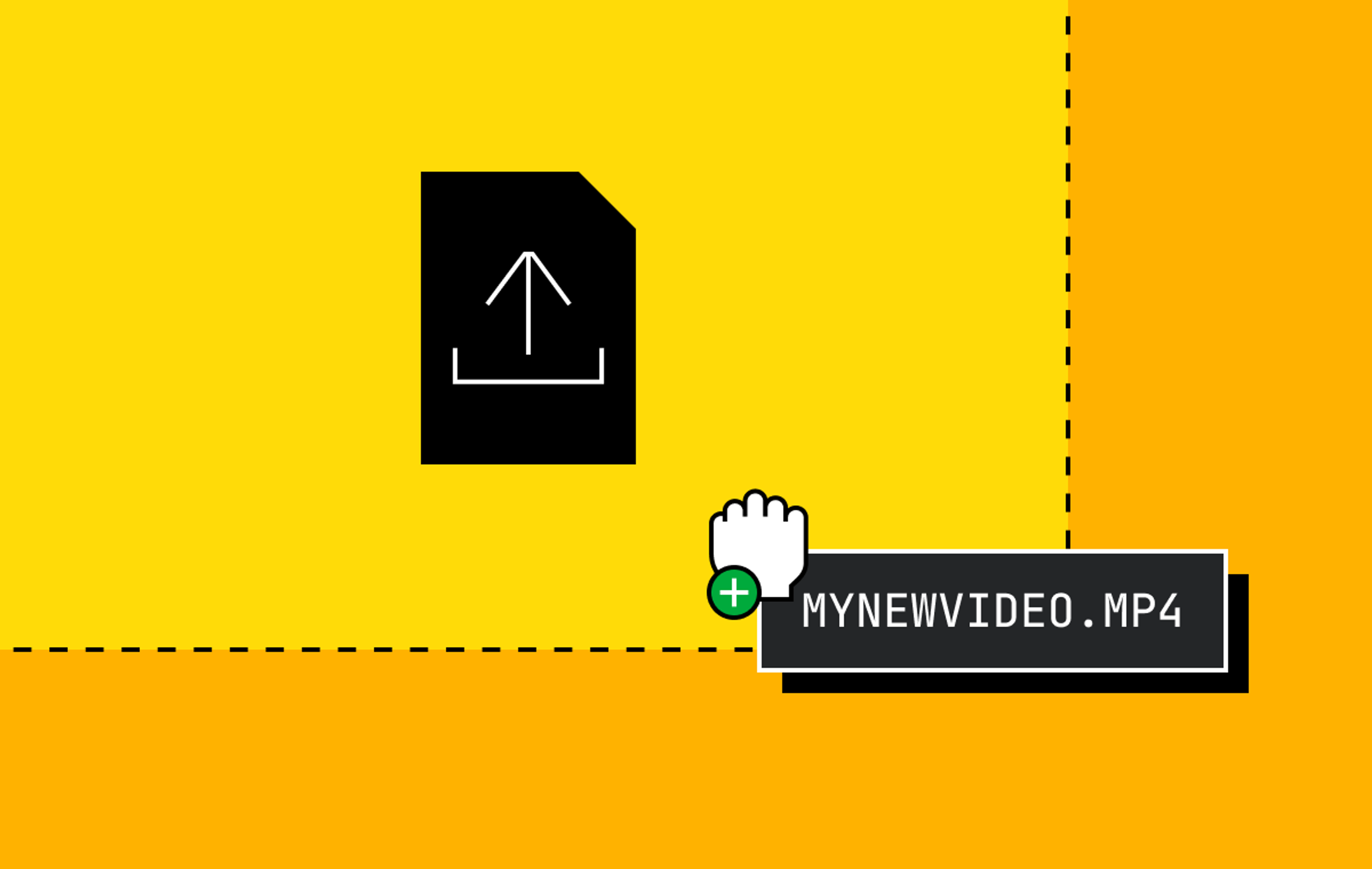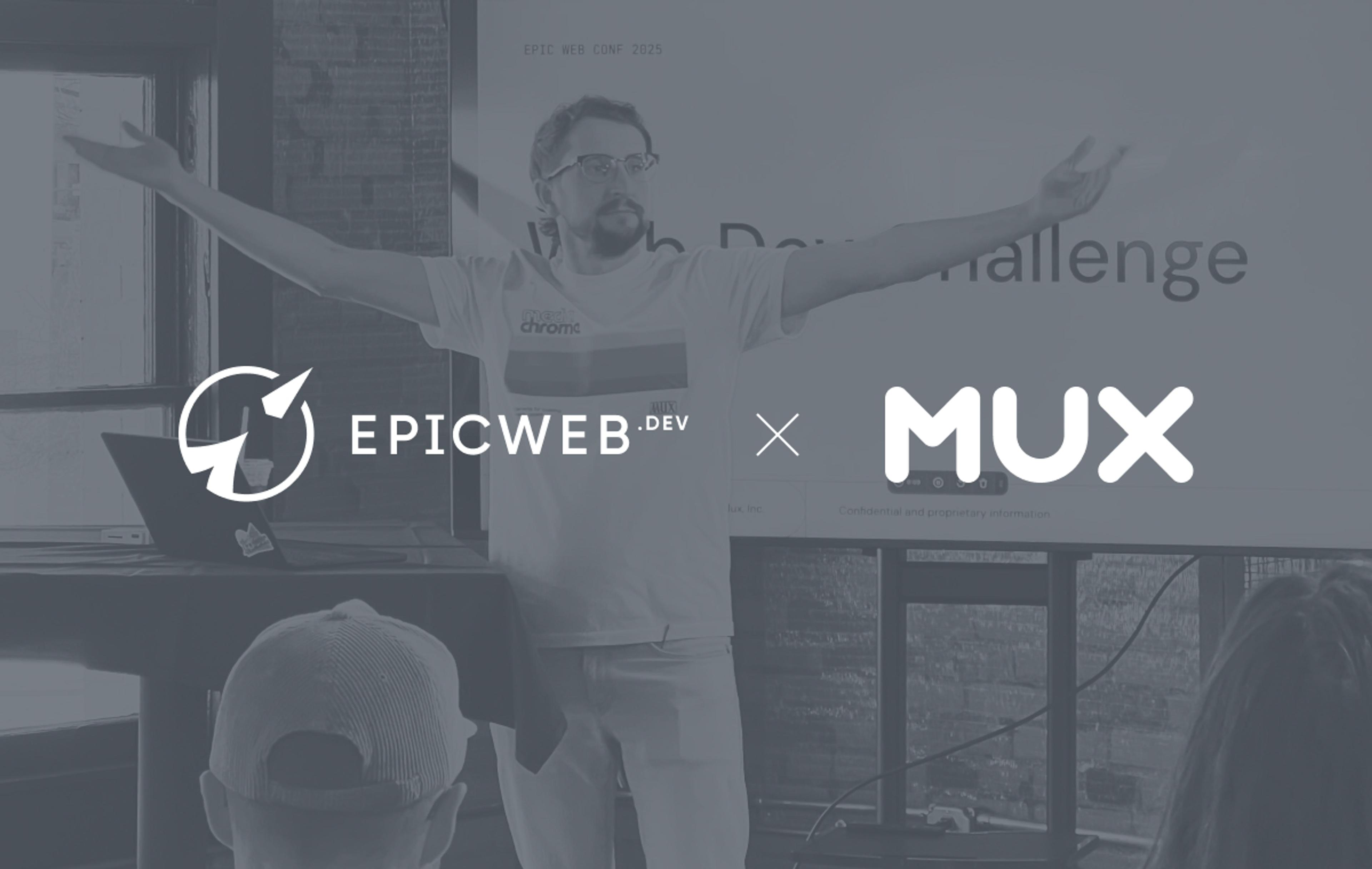When I joined Mux as a new hire, I was immediately taken with the level of accessibility I encountered from day one: Closed captioning and ASL interpreters at all company meetings! A shared understanding of (and respect for) different learning styles! An understanding that the diversity of our users should be reflected in the diversity of our team! There was clearly so much thought put into making our product and environment usable by people with disabilities. For an accessibility junkie like me, it was a dream
Ninety days in, that dream hasn’t ended. After conversations with a few of my fellow Muxers, I’ve come to understand that, while there are still opportunities for us to improve, accessibility is truly part of the foundation of Mux. As we kick of Disability Pride Month this July, we know we still have a lot of work ahead, but we'd love to share some of the things we’ve learned along the way:
Set values that reflect the culture you want, and then live them
We’ve all seen it: A growing start-up decides they should really set some company values to beef up their website and give some direction to the new hires they’ve brought to the team. The founders and executives sit in a room together, toss around ideas, and then reveal a shiny new list at an All Hands meeting. But three months later, employees can’t name a single value from that list. What went wrong?
First, good values need to be specific and unique, and they need to cover more than just how the team gets things done. If everything on your list is “we are client-focused” and “we finish what we start,” you’re missing how you behave on a team and how you relate to people. Values help shape how we work together. When they’re well defined and easy to live out, they can be a powerful decision-making tool.
Company values should go beyond lip service and good intentions. It’s one thing to have a list on your website; it’s another thing for those values to become part of the fabric of an organization. For Mux, our “Be Human” value strongly resonated individually with our founders, allowing it to easily trickle down to everyone else. Today, “Be Human” helps us understand how we make decisions for our team; in meetings, you’ll often hear someone ask, “what’s the be-human thing to do?” One Muxer I spoke with explained how “Be Human” coupled with our “Bias for Action” value enables them to get what they need sooner, without layers upon layers of red tape. When we’re deciding whether we should record a meeting, move to a remote-equal policy, or implement a new benefit that goes beyond the standard benchmark, these values help us know what the right thing to do is.
Don’t assume “one size fits all”
I love the intentional diversity we’re building at Mux, and I’m not just saying that from an HR perspective. Mux leadership makes it clear they recognize we serve a wide audience, and if our team doesn’t reflect that audience, our product won’t be as good as it could be. Bringing a variety of folks together helps expose everyone to different ways of thinking. However, we don’t tokenize anyone or ask team members to speak for a larger group of people.
Being a true accessibility ally means doing your own research before asking questions. It means not defaulting to asking a deaf employee about how closed captioning works if that’s not their expertise. (Ask the engineers who specialize in it!) It means talking to the building maintenance staff when you notice an elevator isn’t working rather than waiting for an employee who uses a wheelchair to bring it up.
It can even surface in the simple things, like making sure we can all enjoy a meal together. For example, we have some employees with food restrictions, but that doesn’t mean everyone in the office needs to eat vegan or gluten free – it just means we try our best to make sure everyone at the table has delicious options at lunchtime and is able to participate in a way that works for them.
Be vulnerable
When candidates and new hires take a look at Mux culture, it seems fun, human, balanced, inclusive – all the buzzwords you’d expect for a growing tech company. But those things shouldn’t just be reflected in photos on a website or words in a blog post (hi!). It has to stay real after the interview, after the onboarding period. Building an accessible culture requires leaders to be open and vulnerable – while making it safe for others to do the same.
For the first time in my career, I felt comfortable enough to talk about my disability in my first interviews with Mux. Another Muxer I spoke with said she had a similar experience after her future manager shared their own background. The interview panels and leaders here fostered that safety with me by acknowledging different experiences and asking questions that showed they valued my background. Disabled employees and those with chronic conditions are encouraged to put their health first by taking the time off they need for doctor’s appointments and mental health days. Some employees have their therapy sessions publicly on their calendar, alongside team meetings and working blocks. Managers have adjusted their natural communication styles for their neurodiverse team members to help them work more effectively. Leaders speak up when hard things happen in the world, admitting when they’re struggling and giving space for others to share and cope. Most importantly, people are comfortable admitting when they don’t know something, and they’re willing to put in the work to learn.
And on that note...
Ask for feedback and be willing to act on it
In addition to semi-annual 360 performance reviews, Mux runs an annual Diversity & Inclusion (D&I) survey. Getting this kind of feedback from our team is healthy and important; survey data lets us know what's going well and where we have opportunities to improve. This is different from an engagement survey: our D&I survey helps us have a pulse check specifically on our progress toward our inclusion efforts. But the most important step comes once the survey is closed. I’ve worked at companies that run surveys and then go radio silent in the weeks after. At Mux, we dedicate time to sharing results internally. Managers and org leaders review highlights (and lowlights) for their teams in dedicated team meetings – and they’re transparent and specific about changes we’re making. For example, last year’s survey showed that we had grown large enough that people were ready for ERGs (employee resource groups) to build community and allyship in smaller groups. So we built a plan and launched them in Q1.
There isn’t a point in running a survey like this if you’re not willing to address and consider the feedback you receive. This doesn’t mean we make drastic changes immediately following a survey. It means we take the input and feedback to help craft an achievable plan over the next phase of growth.
Recognize the goal is not perfection – it’s growth
The first version of Mux video didn’t have closed captions. The team did build it a year or two after shipping, as resources increased and technology improved, but we haven’t always been perfect. We’re still not perfect today – we likely never will be! There are features we’re still missing, accessibility improvements we can still make to our product and culture…but it’s motivating to have something to work toward and a team willing to work toward it together.
Ultimately, a company’s culture isn’t built on things like perks and benefits; it’s built on our behavior. Having a good culture is beneficial to what we’re all trying to accomplish, and a mission like Mux’s needs people who are invested in the way we work together. That’s why we interview not just for technical skills, but also for attitude: humility, drive, and social awareness. If someone doesn’t practice empathy, puts their ego above the team, or isn’t comfortable being wrong sometimes, they might have trouble finding success here. Many companies are built for people who fit a certain narrow profile, and there can be barriers to access for people like me with disabilities or a different background. But at Mux, my experience is that we’re trying to foster a culture where a wider pool of people can belong, succeed, and thrive.



